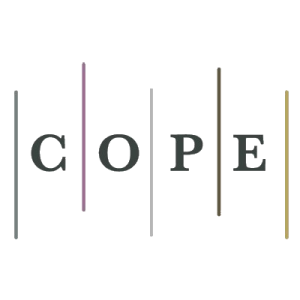Peer-review and Ethics
Peer reviewers play a significant role in ensuring the integrity of the scholarly record. The peer review process depends to a large extent on the trust and willing participation of the scholarly community and requires that everyone involved behaves responsibly and ethically. Peer reviewers play a central and critical part in the peer review process, but may come to the role without any guidance and be unaware of their ethical obligations.
Journals have an obligation to provide transparent policies for peer review, and reviewers have an obligation to conduct reviews in an ethical and accountable manner. Clear communication between the journal and the reviewers is essential to facilitate consistent, fair and timely review.
Professional responsibility: Authors who have benefited from the peer review process should consider becoming peer reviewers as a part of their professional responsibilities. Horizon journals require a formal process of appointment to the review panel, and some require specific expertise; anyone interested in becoming a reviewer should look for the journal guidelines on peer review and follow any requirements posted. In order to assign appropriate reviewers, editors must match reviewers with the scope of the content in a manuscript to get the best reviews possible. Potential reviewers should provide journals with personal and professional information that is accurate and a fair representation of their expertise, including verifiable and accurate contact information. It is important to recognize that impersonation of another individual during the review process is considered serious misconduct. When approached to review, agree to review only if you have the necessary expertise to assess the manuscript and can be unbiased in your assessment. It is better to identify clearly any gaps in your expertise when asked to review.
Competing interests: Ensure you declare all potential competing, or conflicting, interests. If you are unsure about a potential competing interest that may prevent you from reviewing, do raise this. Competing interests may be personal, financial, intellectual, professional, political or religious in nature. If you are currently employed at the same institution as any of the authors or have been recent (e.g., within the past 3 years) mentors, mentees, close collaborators or joint grant holders, you should not agree to review. In addition, you should not agree to review a manuscript just to gain sight of it with no intention of submitting a review, or agree to review a manuscript that is very similar to one you have in preparation or under consideration at another journal.
Timeliness: It is courteous to respond to an invitation to peer review within a reasonable time-frame, even if you cannot undertake the review. If you feel qualified to judge a particular manuscript, you should agree to review only if you are able to return a review within the proposed or mutually agreed time-frame. Always inform the journal promptly if your circumstances change and you cannot fulfil your original agreement or if you require an extension. If you cannot review, it is helpful to make suggestions for alternative reviewers if relevant, based on their expertise and without any influence of personal considerations or any intention of the manuscript receiving a specific outcome (either positive or negative).



